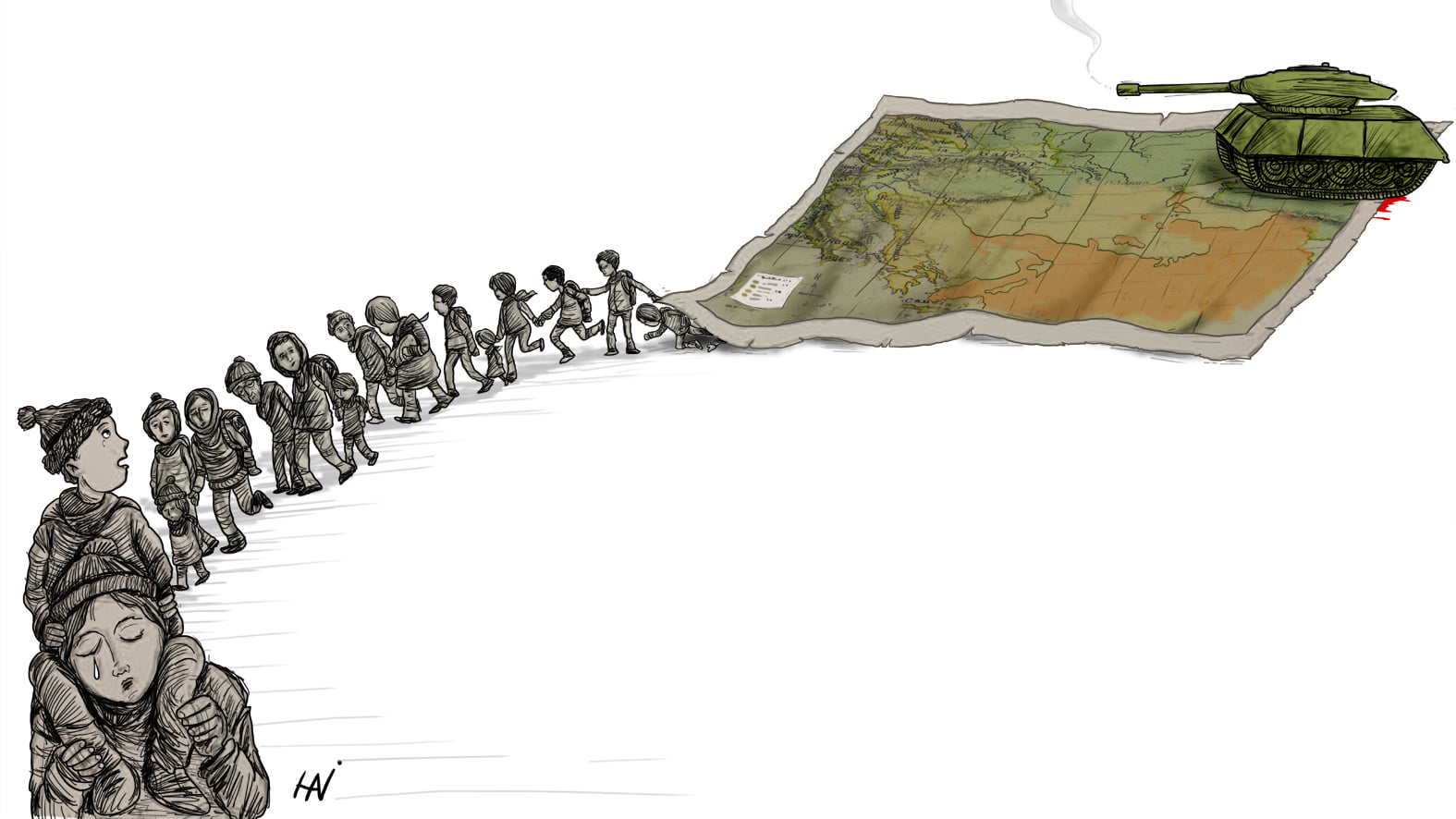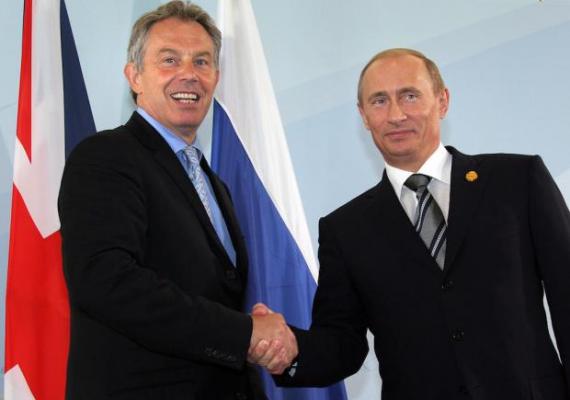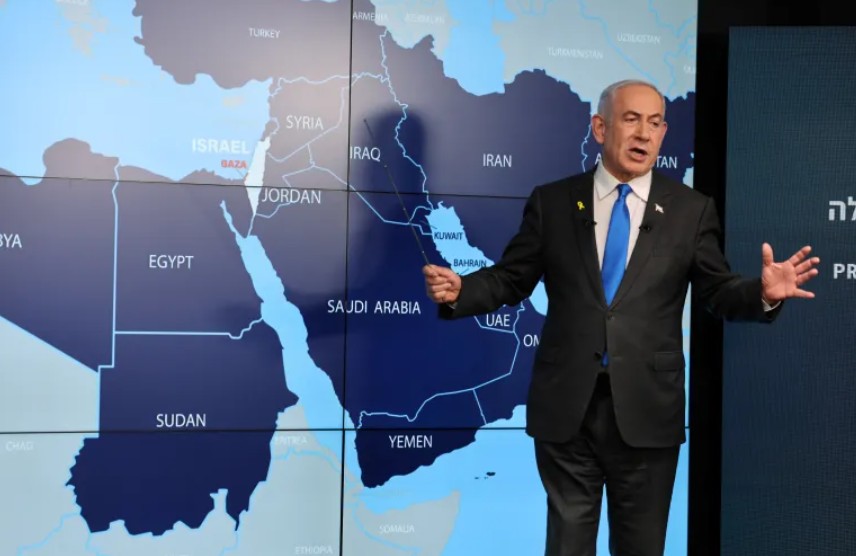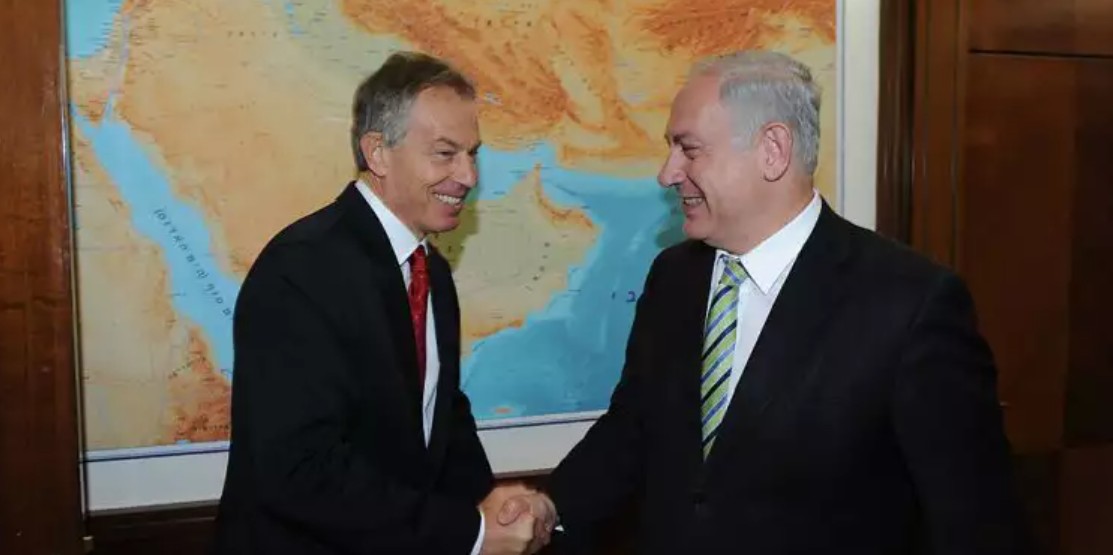Syria, Refugees and the West's Authoritarian Mirror

Against all odds — and in the face of overwhelming military force, foreign occupation, and relentless international slander — Syrians overthrew one of the most brutal and entrenched dictatorships of our time. After more than a decade of revolution, they brought down the Assad regime, a hereditary dictatorship that had ruled by massacre, torture, and fear since the 1970s. The road ahead remains long and treacherous, but heroic free Syrians — long dismissed, demonised, or ignored by much of the world — have proven that people-power can bring down tyranny, no matter how the world tries to save it.
Western media have, since 2011, largely assiduously avoided the term ‘revolution’, preferring “civil war,” as if this were a battle between two equal factions rather than people wanting freedom versus a heavily armed, superpower-backed dictatorship. But as Syrians themselves put it: “We made the revolution. Assad made the war.”
But Assad’s war — and the refugee crisis he and his accomplices deliberately created — didn’t just devastate Syria. They changed the world.
To recap, in 2011, Syrians rose up peacefully, demanding dignity and freedom. Assad responded by declaring war on the population: bombing homes and hospitals, gassing civilians, and torturing tens of thousands to death. Backed by Vladimir Putin and Iran’s regime, Assad displaced over half the Syrian people. Entire cities were pulverised. But in Western capitals, the main concern quickly became not how to stop the slaughter — but how to keep Syrians out.
This wasn’t a side-effect. It was strategy. Putin and Assad were world-class arsonist-firemen, creating the terror they claimed to fight, then offering themselves as the only force that could put out the flames.
And their fire spread.
Putin didn’t just prop up Assad; he weaponised the refugee crisis their war created. From Hungary to Brexit Britain, from Le Pen’s France to Trump’s America, images of desperate Syrian refugees crossing borders seeking safety were used to stoke fear — and the far-right surged in response.
The Western far-right movements didn’t simply emerge amid the chaos of Syria. They fed (or were fed by the Kremlin) on it — on a catastrophic war unleashed by Assad, Putin, and Khamenei, whose armies, air forces, and navies waged a modern blitzkrieg against civilian neighbourhoods, hospitals, and escape routes. The Syrian people — armed with little more than small arms and defiance — faced cluster bombs, chemical weapons, and mass imprisonment. And then, insult followed atrocity: global media outlets, Western politicians, and Kremlin-linked networks repeated Putin’s narrative, portraying the fleeing victims as terror threats and Assad, Putin, and Iran’s regime as bulwarks against terrorism. The very civilians being bombed were reframed as security risks, while the actual state sponsors of sectarian death squads — including Assad’s long-documented covert backing of ISIS — were whitewashed as defenders of order. It was victim-blaming on a global geopolitical scale, and far-right movements across the West seized on it as justification for fear, exclusion, and authoritarianism. And in many cases, they grew with Putin’s encouragement and direct support.
The Kremlin’s propaganda machine repeatedly painted Syrians as terrorists, flooding Western social media with lurid disinformation. Far-right parties in Europe parroted Kremlin talking points — claiming the “invasion” of refugees would replace Western civilization. Meanwhile, Assad’s forces bombed more hospitals and breadlines, ensuring the exodus would continue.
Far from condemning this, many Western leaders nodded along. Tony Blair, as late as 2019, was still urging the West to cooperate with Putin in Syria, despite years of evidence that Russia was deliberately targeting civilians. Others hailed Putin as a “strong leader” defending the world from jihadists. In reality, he and Assad had deliberately fueled that jihadism — releasing extremists from prison, destroying moderate opposition, and then selling themselves as saviours from the chaos they had engineered.
These were not counter-terror campaigns. They were acts of deliberate destabilization, of state terror designed to break a nation and shake the West — and they worked.
The irony is almost too bleak to bear: Syrians rose up for freedom. In the effort to crush them, Assad and Putin helped erode freedom elsewhere, turbocharging the Western far-right — whose leaders now pursue the same cynical logic: generate fear, promise order, vilify the 'other', demonise dissent.
Far-right leaders like Netanyahu, who worked closely with Putin from 2015 onwards in Syria and is reportedly still in contact, have adopted similar methods. In Gaza, in the West Bank, and increasingly in southern Syria, Israel is applying its own version of the arsonist-fireman model — bomb and blockade a civilian population, then brand them as threats to justify further genocidal violence, safe in the knowledge the world will do nothing to stop it.
Even now, long after Assad's fall, Syrians continue to face punishment for surviving. Among the most heinously targeted are Palestinian-Syrians — people doubly displaced, denied both home and status. Germany, one of the few Western states to accept a significant number of Syrian refugees, has now begun stripping Palestinian-Syrian refugees of their residency status and rejecting residency applications from them on the grounds that their Syrian identity papers are no longer valid. Stateless in Syria and stateless in exile, they are once again being abandoned by the international community. And Germany likely won’t be the last to inflict such shameful abuse.
For all the horror inflicted on Syria and its peoples, however, they eventually overthrew the Assad regime — a feat the world barely acknowledged. After over a decade of resistance, including from within Assad’s own core support base, the regime finally collapsed in late 2024. It was not foreign bombs that brought it down, but the Syrian people.
That should be the headline. That should be the lesson. While far-right ideologues invoke Syria as a cautionary tale of what happens when the West is “too soft,” the real cautionary tale is this: when the West aligns itself with tyrants and buys into their propaganda, it accelerates its own decline.
But it isn’t and never was refugees and immigrants who threaten the West, itself built on immigration — it’s how the West chooses to respond to them. Refugees and immigrants bring richness, renewal, and resilience. What corrodes societies is the spread of repression, paranoia, and exclusion — the worldview championed by Assad and Putin, and now parroted by leaders like Trump, Orban, and their peers. Policies built on fear and conspiracy aren’t just immoral; they’re stupid and self-defeating. The current accelerating brain drain from the U.S. is a warning: keep going down this path, and it’s not outsiders who will dismantle the West — it will do that to itself.
And of course, vilifying refugees is the most shameful type of victim-blaming, echoing the lies of the very regimes that drove them from their homes. Syrian refugees have been slandered twice over: first by their oppressors, then by the governments that claim to uphold freedom. And yet despite it all, they endured.
The West owes Syrians more than empty apologies. It owes them the recognition that they saw the danger earlier. They understood at first-hand what unchecked tyranny, surveillance, and militarised propaganda can do to a society. They fought tyranny with extraordinary courage and against unimaginable odds. And in the end, they won.
Maybe it’s time the West started learning from them.
By Ruth Riegler
Artwork by Hani Abbas










